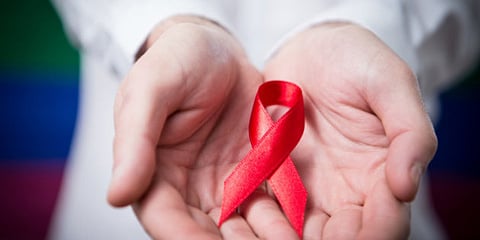
- NEWS
- the EDIT
- COMMENTARY
- BUSINESS
- LIFE
- SHOW
- ACTION
- GLOBAL GOALS
- SNAPS
- DYARYO TIRADA
- MORE

A health advocate said "shame" is one of the reasons why some refuse to get tested for human immunodeficiency virus (HIV).
In an interview with DAILY TRIBUNE, Danvic Rosadiño, head of Programs and Innovations of LoveYourSelf Inc., said there is still a lot of shame surrounding HIV.
"This means people are afraid to get tested, worry about confidentiality, may not have the time to do it or have other life priorities, or have that extreme worry of what to do next, especially if they turn positive to the test," Rosadiño said.
"This is what we ensure, that HIV testing is safe, confidential, and we are there every step of the way, regardless of your HIV status," he added.
With the help of the government, LoveYourSelfPH offers free HIV-related services.
Since most of their hubs are concentrated in Metro Manila, LoveYourSelfPH also offers pre-Exposure Prophylaxis (PrEP), a biomedical intervention for HIV infection in the form of a pill.
"There is stigma or a mark of disgrace in HIV if we view having that virus as an ‘act of disgrace’ or a shameful life experience. We are at this time and age that we can prevent how to transmit it, and those who have it can live a happy and healthy life," Rosadiño continued.
He stressed that a positive HIV status "is not a death sentence anymore."
"We need to unlearn — unlearn the things that we know that having this infection is shameful, unlearn the discriminatory things we know about this infection. We need to learn — learn that this can be managed, and this is not a death sentence anymore," he continued.
"We need to discuss more to learn more: not view sex as taboo, and discuss how we can protect ourselves, and integrate it into our various lifestyles."
In July, according to an ABC report, "stigma and fear" fueled low HIV testing in the Philippines, one of the world's fastest-growing HIV epidemics.
Citing the Department of Health (DoH), ABC pointed out that in 2012, there were only about nine new HIV cases logged daily in the Philippines. That number rose to 46 in 2023 — a 411 percent increase in a little over a decade.
The report also noted that young people are driving the surge in HIV cases in the Philippines, with people under 35 accounting for over 75 percent of reported cases. Sexual contact has consistently been the leading mode of transmission.
Other modes of transmission include the sharing of infected needles and transmission through blood/blood products with needle stick injuries.
The DoH estimates that by the end of 2024, the number of Filipinos living with HIV will rise to 215,400.
